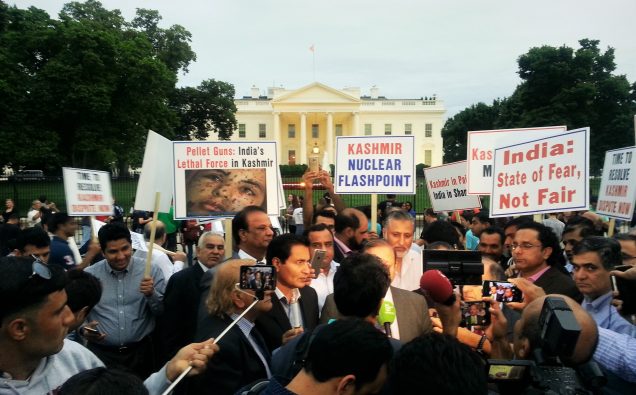
Such has been the state of hostilities between the two nuclear-armed neighbors that any talk of peace looks unrealistic, though welcomed by all those who know the value of peaceful existence.
But this week, the two sides announced that their military commanders have agreed to abide by a 2003 ceasefire agreement along the Line of Control in Kashmir – the mountainous region that lies at the center of South Asian tensions.
The international community, led by the United States and the United Nations, welcomed the truce between the two countries, whose forces have exchanged fire, fought skirmishes, engaged in dogfights in the region in the last few years. Relations between the two countries hit rock bottom in August 2019, when New Delhi unilaterally changed the status of the Muslim-majority Kashmir part, under its control.
The curfews and strict lockdowns on the Kashmiri people drew international condemnation but Prime Minister Narendra Modi, who represents the ultranationalist thinking of his party, BJP, on the majority Hindu domination of the Indian polity, has refused to allow foreign observers into the occupied territory.
Pakistani Prime Minister Imran Khan warned Modi of the severe consequences of the move to strip Kashmir of its especially constitutionally mandated autonomous status.
In Washington, State Department spokesman Ned Price welcomed the joint statement between India and Pakistan that the two countries have agreed to maintain strict observance of a ceasefire along the LoC starting immediately.
He called for dialogue between the two longtime rivals and the largest South Asian countries.
“We encourage continued efforts to improve communication between the two sides and to reduce tensions and violence along the LoC,” he added.
The Biden Administration has not publicly articulated its South Asia policy but its dependence on Pakistan for peace and stability in Afghanistan, and strategic calculations vis-à-vis China put the two countries high on its list of priorities, as it has done since the start of the century.
Price also spoke about the US interest in having a peaceful environment in the region, and the need for talks on Kashmir, recognized by the UN as disputed territory.
“When it comes to the US role, we continue to support direct dialogue between India and Pakistan on Kashmir and other issues of concern,” he noted.
He reiterated Washington’s emphasis on the need for talks between its two close friends.
“You’ve heard me say from this podium and others from this administration say that we had called on the parties to reduce tensions along the LoC by returning to that 2003 ceasefire agreement,” he said.
Price also reiterated the US position and condemned any infiltration into Indian Kashmir from the Pakistani side, which has dropped significantly in recent years.
The UN Secretary-General Anthony Guterres hailed the agreement and hoped for more talks between the two countries on issues dividing them.
The joint statement released to the media states that “both sides agreed for strict observance of all agreements, understandings and cease firing along the LOC and all other sectors, with effect from midnight 24/25 February 2021.”
In “the interest of achieving mutually beneficial and sustainable” peace, the two sides “agreed to address each other’s core issues/concerns, which have the propensity to disturb the peace and lead to violence,” the statement says.
Also, the Directors- General of Military Operation of India and Pakistan in their conversation reiterated the need to utilize existing bilateral arrangements, including meetings between their border security officials, to resolve “any unforeseen situation or misunderstanding.”
Commenting on the development, Pakistani Foreign Minister Shah Mehmood Qureshi called it an “important step” for promoting regional peace.
“It can be a good beginning, but India will have to sincerely implement the arrangement,” Qureshi said.
South Asian watchers are carefully viewing the development since the situation remains sensitive in the region with the Modi government in New Delhi using hardline against Pakistan as a political tool to win votes, and Pakistan still reeling from the August 5, 2019 move that has fueled tensions in the region to a high pitch.
Associated Editor Huma Nisar and writer Iftikhar Ali contributed to this report.














